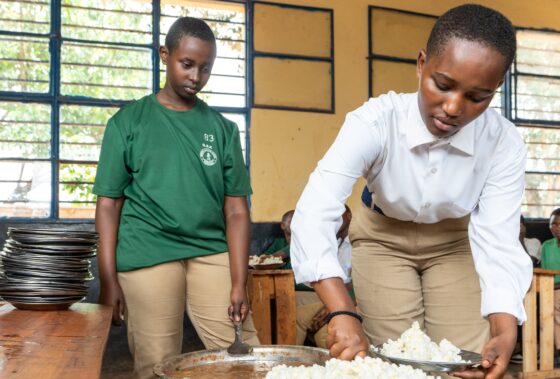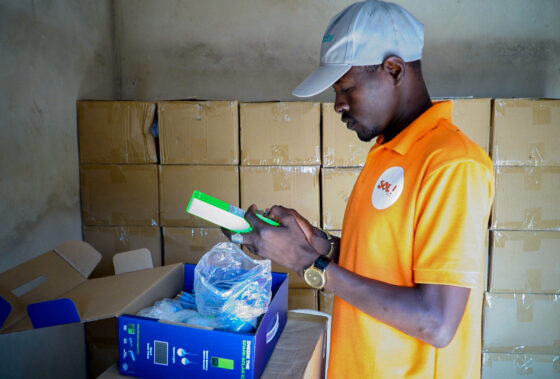In rural Malawi, a $0.46 cookstove is helping families like Grace Samuel’s to cook more efficiently, save money, and protect the forests that sustain them. Through demand-side subsidies and local entrepreneurship, clean energy is reaching Malawi’s most remote communities.
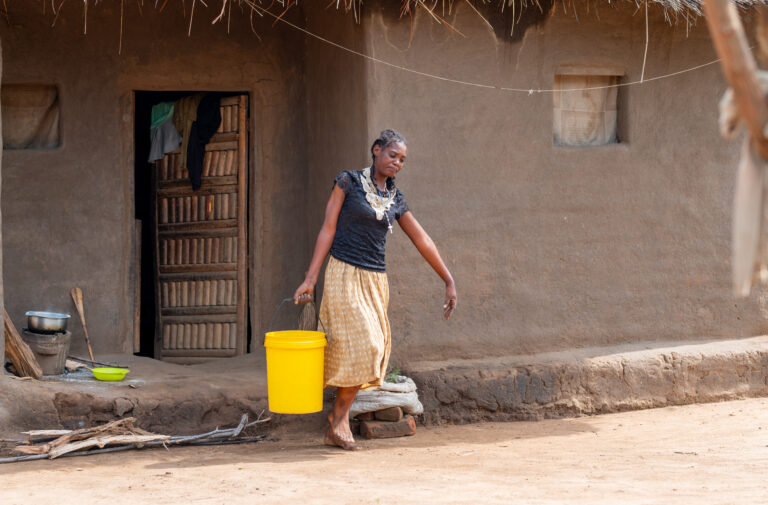
30-year-old Grace Samuel from Group Village Headman Mbatamira, under Traditional Authority Kambalame in Salima District, once relied on selling firewood to feed her two children. After her divorce in 2015, Grace became the sole provider for her family. Like many others in her community, her livelihood was deeply tied to the rapidly depleting forest of Mafuka Hills – providing the firewood she sold for her income and used for cooking needs. But when authorities closed off the area to protect the forest, Grace lost her main source of firewood. In her district, over 90% of households still depend on biomass for cooking. Consequently, Grace and her neighbours had to walk long distances to gather fuel, exposing themselves to health risks from smoke and physical exhaustion.
Demand-side subsidies bring clean energy to the most vulnerable
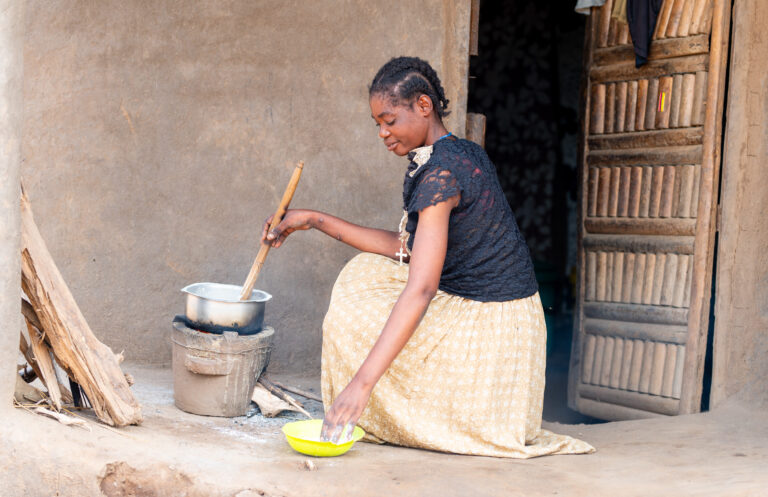
That began to change in December 2024, when EnDev selected Grace for support through the demand-sde subsidy (DSS) project, funded by the Netherlands Ministry of Foreign Affairs. It is part of a global DSS component piloting innovative mechanisms for vulnerable groups across Africa. As the struggle for clean and affordable energy in Malawi is real, this project helps the country’s most vulnerable families – like Grace´s – to gain access to off-grid solar products and improved cookstoves.
To identify the poorest households, the pilot uses a national socio-economic registry and offers subsidies to the most vulnerable. These subsidies cover up to 88% of the market price for solar products, like solar home systems, and 89% for stoves. Through this pilot, Grace was able to buy her first Chitetezo Mbaula – a ceramic stove – for just 800 Kwacha (about $0.46) instead of the regular 5,380 Kwacha (around $3).
While she could not afford the solar home system just yet, the improved cookstove has already transformed Grace’s daily life.
Before, I used to burn up to 13 pieces of wood just to heat water and cook breakfast on an open fire. Now, with the Chitetezo Mbaula, only three or four sticks are enough. It keeps the fire better, produces less smoke, and saves me a lot of time. I encourage others to try it too.
Grace, Malawi
Reaching remote villages through local sales agents
EnDev channels the subsidies by partnering with companies like Dziwani Investments who produce and distribute improved cookstoves. To reach remote villages in Salima, they work with local sales agents from those regions. One of them is Aisha Joseph. She has sold over 500 cookstoves in four months in her area.
“I go out and market the stoves during community meetings and local gatherings. People are excited when they hear how much wood they can save,” Aisha explains. “More women are beginning to understand that this is not just about cooking, it’s about saving our forests and protecting our health.”
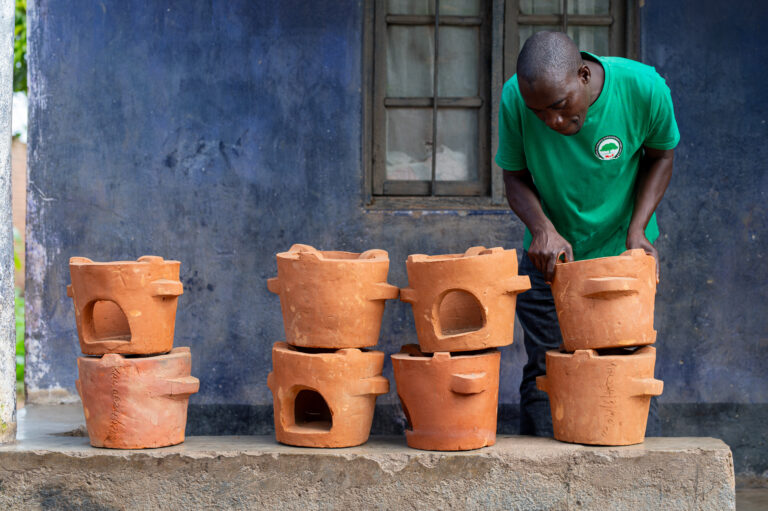
So far, Dziwani Investments has sold over 10,000 Chitetezo Mbaula cookstoves, created jobs for local agents, especially women like Aisha, and improved access to clean energy solutions in hard-to-reach communities. The DSS pilot has also pushed private sector partners like Dziwani Investments to scale their operations.
“With the support from this pilot, we have expanded to Dedza, Balaka, Nkhata Bay, and Salima,” says Alfred Chisale, Executive Director of Dziwani Investments. “We’ve also established a new production hub in the North. Logistics are tough, but the impact is worth it.”
Promising results
Salima District, heavily affected by deforestation and unsustainable resource use, stands to benefit greatly. As more communities follow Grace’s cleaner cooking pathways, Mafuka hills are expected to slowly restore its depleted resources.
Only 14% of households here have electricity access. Traditional cooking methods like three-stone fires are wasteful. Programmes like these promote sustainable alternatives that can reduce pressure on our forests.
Adam Jarson, Acting Director of Natural Resources and Environment at the Salima District Council.
For Grace, the change is simple but powerful. Her home is cleaner, her days are easier, and the forested hills nearby are beginning to recover. A 46-cent stove has made it happen.

